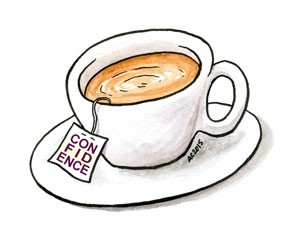Although significant parts of your work during the main part of the academic year are scheduled weekly or relate to things scheduled weekly, your workload is not as consistent as your teaching schedule might suggest. There are periods of more intense activity at the beginning of term, and when assignments come in. During these periods, you might find it harder to protect your writing time.
First, it’s okay if you can’t do much writing (or any) for a week or two. Sometimes other things really are more important and more urgent. YOU can make the best decisions for YOU. It is better to make a conscious decision. You don’t need to waste time and energy juggling balls that you could put aside. And you certainly don’t need to waste time and energy worrying about dropped balls, or doing weird gymnastics trying to pick those balls up without dropping anything else.
If you decide to not-write for a week or so

You probably fear that if you stop you’ll never start again. It will be difficult to restart but you can plan now to smooth the transition back to writing again.
Make notes about what your project needs while you are still familiar with it. You can even write Future-You a letter, reminding her what you were going to do next, what motivated this project, and so on. Pack up the materials (virtual and physical) and put them away so they are not distracting you. Schedule time in your calendar to take them out and start again on a specific date.
Notice if there is anything someone else could be doing while you are focussed elsewhere. Do you have an RA who could find (read and summarize) some material you need to incorporate? Or work on the references? Is your current draft good enough to ask a colleague to read? Or to send to an editor? There may be nothing, but if there is something, take the time to set that in motion. The latter may work better if you can spot these periods well in advance and make arrangements with your colleague or an editor.
If you decide to reduce your writing time but keep going
Make a conscious plan for how much time you can devote to writing and schedule it. Don’t let your gremlins tell you that’s not enough. In fact, if you are worried you can’t do even that much, make it less. This might be a good time to try the 15 minute a day challenge.
Do your writing first. You can even do it before you leave for the office (while you drink your coffee). If you have to get up half an hour earlier to make that work it might be worth it. Don’t worry about how much you write, just do your allocated amount every day and then put it away. You can then go do whatever else you have to do knowing you have already written. If you get more writing related ideas on your way to work, have a way to record those as notes but ONLY record them as notes.
If morning is not your best time, give writing your BEST time of day. And schedule it. For example, if you know you are best in the middle of the day, allocate time for writing at lunchtime. (Eating lunch, and leaving your office to walk to somewhere to eat lunch and write for a bit, will also be worthwhile.) Trying to “squeeze it in” requires more cognitive energy and creates a lot more emotional processing when you don’t, or when you are too tired to do your best work.
This is temporary
Do not think of these super-busy periods as how a normal week should be. There are extra, time-sensitive, responsibilities associated with these crunch times. Your other weeks should include writing in your regular plans. You can mark the date on your calendar when you can give more time to writing. In fact you might be able to counter these waves of busy with mini-writing retreats in other weeks.
When you first come back after a break, you will need to reacquaint yourself with your project. You may find that the time away allows you to see your project with fresh eyes. Your goal for that first writing session after a break is to figure out what the project needs and make a list. You can spend a whole 90 minute session doing that. If you are a member of the Academic Writing Studio, A Meeting With Your Writing is a great way to get back into your writing after dropping it for a week or so. Put it in your calendar.
You can do this
 Breathe. Make a plan to get through this busy period. Try to get enough sleep. Try to eat reasonably well.
Breathe. Make a plan to get through this busy period. Try to get enough sleep. Try to eat reasonably well.
Enjoy your writing!
Related posts:
Balancing writing and student demands
This post was first published 1 April 2016 in the newsletter for members of the Academic Writing Studio. It has been edited. Audio version added 12 March 2020.








